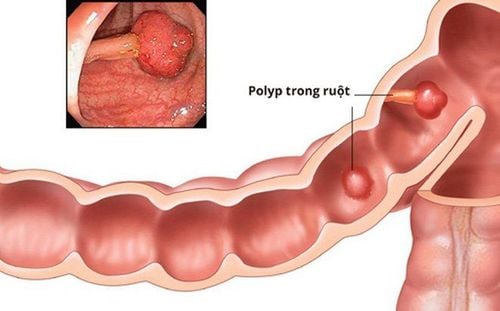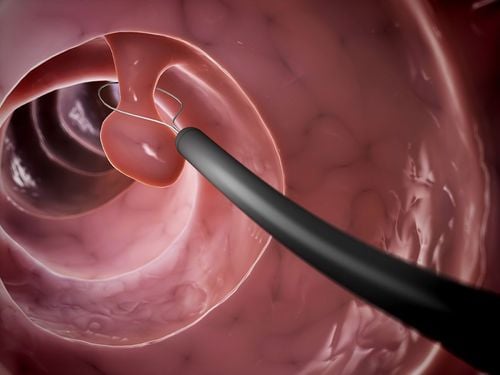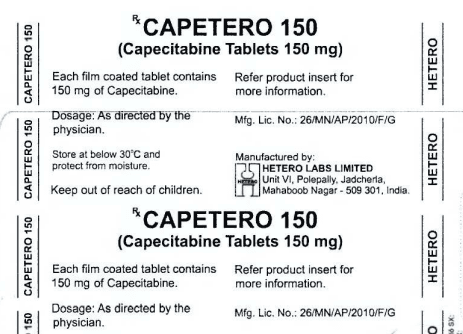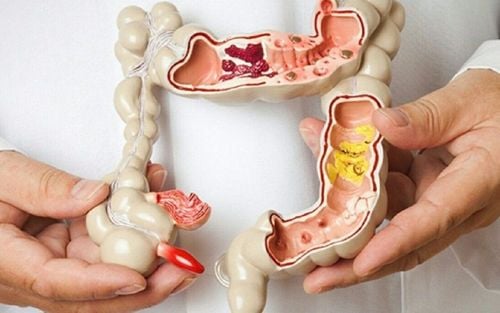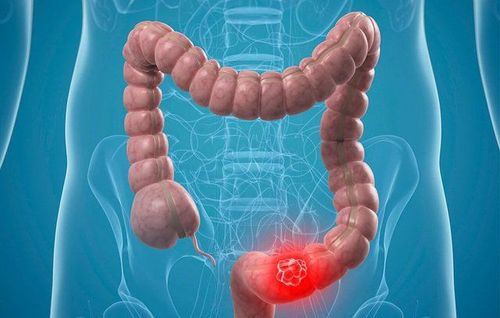This is an automatically translated article.
The article was written by MSc.Dr. Ha Thi Thu Hien - Laboratory Department - Vinmec Times City International Hospital1. Common types of cancer in the colon
Most types of colorectal cancer are adenocarcinomas. These cancers start in the lining of the colon, where cells make mucus to lubricate the inside of the colon. When doctors talk about colorectal cancer, they are almost always talking about this type. Some subtypes of adenocarcinoma, such as mucinous medulloblastoma or ring cell tumor, may have a worse prognosis than other subtypes of adenocarcinoma.
Other, less common types of tumors can also be found in the colon. Includes:
Neuroendocrine tumors. They start from special hormone-producing cells in the gut. Gastrointestinal stromal tumors (GISTs) start in special cells in the colon wall called interstitial cells of Cajal. One of them is benign (not cancerous). These tumors can be found anywhere in the gastrointestinal tract, but are uncommon in the colon. Lymphoma is cancer of the cells of the immune system. They mostly start in the lymph nodes, but they can also start in the colon, rectum, or other organs. Connective cell cancers can arise from blood vessels, the muscle layer, or other connective tissues in the wall of the colon. Connective cell cancer of the colon or rectum is rare.
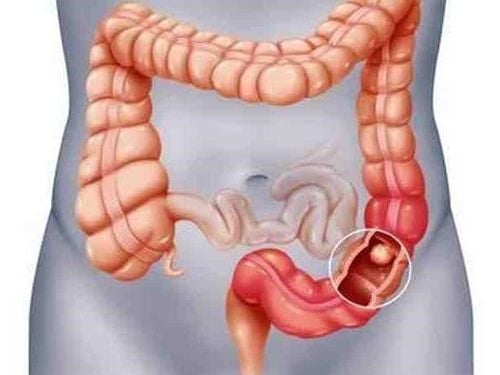
2. Signs and symptoms of colorectal cancer
Colorectal cancer may not cause symptoms right away, but if it does, it can cause one or more of the following:
Change in bowel habits, such as diarrhea, constipation constipation or flatter stools that last for more than a few days Feeling like you need to have a bowel movement and don't get better when you have a bowel movement Rectal bleeding with bright red blood when you have a bowel movement Blood in the stool, which can make stools dark brown or black Color cramps or abdominal pain Weakness and fatigue Unexpected weight loss Colorectal cancer can bleed into the digestive tract. Sometimes blood can be seen in the stool or make the stool darker, but usually the stool looks normal. But over time, some blood is lost and a low red blood cell count (anemia). Sometimes the first sign of colorectal cancer is a blood test that shows a low red blood cell count.
Some people may have signs that cancer has spread to the liver with an enlarged liver on examination, jaundice (yellowing of the skin or whites of the eyes), or shortness of breath due to cancer that has spread to the lungs.
Many of these symptoms can be caused by conditions other than colorectal cancer, such as infections, hemorrhoids or irritable bowel syndrome. However, if you experience any of these problems, it's important to see your doctor right away so the cause can be found and treatment if needed.

Vinmec International General Hospital is implementing a Package of Screening and Early Detection of Colorectal Cancer, implemented by a team of experienced doctors and nurses in the field of colorectal cancer diagnosis and treatment. colon, with the support of a system of modern technological equipment and facilities, full of specialized means to diagnose the disease and stage it before treatment such as: Endoscopy, CT scan, PET-CT scan, MRI, mammogram, histopathological diagnosis, gene-cell testing, ... help detect colon cancer early even when there are no symptoms.
Vinmec International General Hospital is one of the hospitals that not only ensures professional quality with a team of leading medical professionals, modern equipment and technology, but also stands out for its examination and consultation services. comprehensive and professional medical consultation and treatment; civilized, polite, safe and sterile medical examination and treatment space.
If you have a need for consultation and examination at Vinmec Hospitals under the national health system, please book an appointment on the website for service.
Please dial HOTLINE for more information or register for an appointment HERE. Download MyVinmec app to make appointments faster and to manage your bookings easily.





